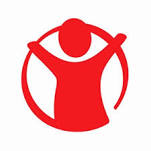Child Safeguarding:
Level 3 - the responsibilities of the post may require the post holder to have regular contact with or access to children or young people.
ROLE PURPOSE:
Under direct supervision of the MEAL Coordinator, the MEAL Officer will support Project Officers, partner staff in data consolidation and management and quality management; undertake MEAL related activities and implement an appropriate monitoring, evaluation, accountability and learning system for successful delivery and attainment of project goal and objectives.
S/he ensures that strong MEAL system is in place so that the implementation of the programs is of high
quality and accountable to beneficiaries, partners and donors.
SCOPE OF ROLE:
Save the Children has been operational in Tanzania since 1986 providing support to children through developmental and humanitarian relief programmes delivered in support of Government of Tanzania priorities and policies both directly and through local partners. Current programming focuses on child protection, child rights governance, education, nutrition, HIV/TB and emergency response. In 2012, as part of a global reorganization process, Save the Children combined programmes of SCUK, SCUS, SC Sweden to create a single operation in Tanzania. We currently have an operational presence in Dodoma, Singida, Iringa, Rukwa, Morogoro, Shinyanga, Zanzibar, Songwe and Kigoma as well as Dar es Salaam and we work through partners in other parts of the country. We employ nearly 100 staff and have an annual operating budget of approximately $10 million.
Reports to: Dar basedMEAL Coordinator with dotted line managed by Area Programme Manager.
Staff directly reporting to this post: N/A
KEY AREAS OF ACCOUNTABILITY
Program Monitoring, Assessments, Evaluation and Reporting
- Assist in designing and regularly updates program MEAL guidelines and tools and ensures that
- project staff have access and can use the tools,
- Coordinates the collection, reporting and validation of gender and age disaggregated data from the programme.
- Ensures the quality of monitoring data reported by field offices through capacity building, supportive supervision, routine checking and validation of data.
- Produce monitoring checklists and conduct quarterly joint field process monitoring, quality assessment and data validation, and provide feedbacks and recommendations for timely improvementMake sure the utilization of appropriate reporting templates that facilitate the acquisition and aggregation of data in sectors or develop and maintain effective database.
- Participate in all other aspects of MEAL, for example surveys, baselines, evaluations, joint projects monitoring and reviews / lessons learning workshops/events.
- Supports the implementation of a data management system to inform planning, implementation, monitoring and evaluation of the program.
- Undertake regular visits to field locations to support monitoring and evaluation processes.
- Ensures that necessary reporting components are lined up in advance of report deadlines and
- responsible persons are followed up on the schedule,
- Compile and provides analytical output level inputs to program technical reports,
Accountability and Organisational Learning
- Ensure a functioning accountability system by collaborating together with the Project officers, to undertake accountability activities, including the development and use of information sharing materials and the establishment of complaint response mechanisms. This includes ensuring that complaints are logged and addressed in a professional and timely manner and that serious complaints relating to abuse, exploitation and corruption and referred appropriately.
- Organize and facilitate quarterly district panel monitoring, progress review and learning events
- Develop field staff capacities to employ a learning approach to their work. She/he will also be actively
- involved in promoting learning through documentation of lessons learned and developing
- approaches for community analysis and utilization of data for decision-making.
- Promote learning in the project, particularly on issues of programme quality. Regularly analyse data and produce reports on best practices and case studies
Staff Management, Menrtorship and Development
- Training project staff on use of data collection tools in order for them to collect good quality monitoring data in a timely manner and organize data received for reporting to the Programme Manager and MEAL Coordinator.
SKILLS AND BEHAVIOURS (our Values in Practice)
Accountability:
- Holds self-accountable for making decisions, managing resources efficiently, achieving and role modelling Save the Children values.
- Holds the team and partners accountable to deliver on their responsibilities - giving them the freedom to deliver in the best way they see fit, providing the necessary development to improve performance and applying appropriate consequences when results are not achieved.
Ambition:
- Sets ambitious and challenging goals for themselves (and their team), takes responsibility for their own personal development and encourages others to do the same
- Widely shares their personal vision for Save the Children, engages and motivates others
- Future orientated, thinks strategically
Collaboration:
- Builds and maintains effective relationships, with their team, colleagues, members and external partners and supporters
- Values diversity, sees it as a source of competitive strength
- Approachable, good listener, easy to talk to
Creativity:
- Develops and encourages new and innovative solutions
- Willing to take disciplined risks
Integrity:
- Honest, encourages openness and transparency
Child Safeguarding
All staff have an obligation to ensure they fully understand the provisions of the Child Safeguarding Policy, the Code of Conduct and related policies. They must conduct themselves in accordance with the rules of the Child Safeguarding Policy, in their personal and professional lives – which includes reporting suspicions of child abuse. All staff must ensure the way they are carrying out their work is not putting children at risk (or further risk).
QUALIFICATIONS AND EXPERIENCE
- Bachelor degree in an area of Social Science, Statistics, Economics, Health, Community Development or equivalent.
- At least 2 years experience of working in M&E with experience of developing M&E plans, capacity building, quantitative and qualitative data collection, analysis and reporting and/or other aspects of M&E in both emergency and development contexts. Preferably with solid experience in more than one of the Save the Children priority sectors: education, protection, rights governance, HIV/AIDS, health and nutrition, and emergencies.
- Experience in setting up and/or managing M&E systems, preferably in NGO setting
- Knowledge and/or experience of working on accountability initiatives, such as child participation, information sharing, and complaints response mechanisms.
- MS Office applications, Word, Excel, PowerPoint, Spreadsheets and other Statistical software
- Ability and willingness to travel to field sites and work in remote locations, often for prolonged periods of time
- Experience in and proven ability to support, train and mentor staff and partners in monitoring and evaluation methodology
- Highly developed interpersonal and communication skills including influencing, negotiation, and coaching
- Strong results orientation, with the ability to challenge existing mindsets
- Ability to present complex information in a succinct and compelling manner
- Knowledge of qualitative and quantitative research methods
- Fluency in Swahili & English (both verbal and written)
- Commitment to and understanding of Save the Children strategy, vision, mission, values and principles, good understanding and commitment to principles of child rights and child protection.

